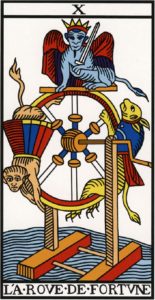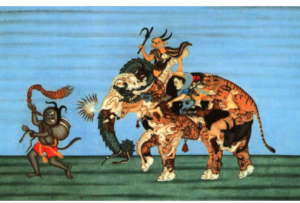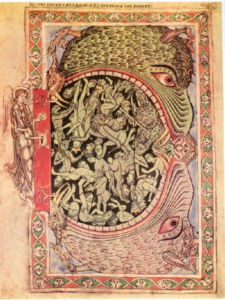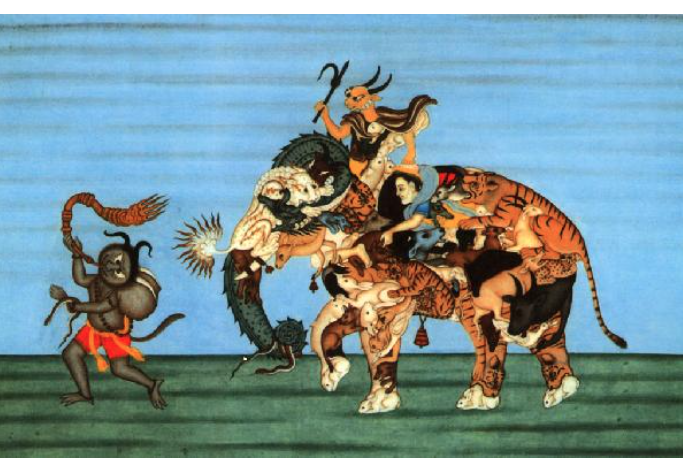What are the differences between personality and essence in terms of unity?
The Fourth Way advises us that the study of man (or woman) must go hand-in-hand with study of the world. That man is a microcosmos[1], with traits identical to those of a higher cosmos. Therefore, man can be compared to the higher cosmos of humanity or the earth. In making this comparison, one notices that humanity, the world of men and women, is composed of seemingly multiple elements: barbers, soldiers, musicians, politicians, farmers, thieves, and so on. Humanity is an endless line of seemingly unrelated parts. This apparent multiplicity corresponds to the Fourth Way description of a single person as being composed, in a psychological sense, of many different individuals, the many ‘I’s.
‘Then [Jesus] asked him, “What is your name?” And he answered, saying, “My name is Legion; for we are many.”’ –The Gospel According to Mark, 5:9
The Fleeting Sense of ‘I’
These ‘I’s–fleeting, changing entities, lasting three seconds each–are responses to internal or external stimuli. While some are pleasant, others are painful; some desirous, others repellent; some are friendly, others hostile. As the ‘I’s emanate from one physical body, and thus harbor an illusion in common. Typically, each ‘I’ imagines itself to be the whole human machine. Hence the situation of being “king for a day” is our condition. This is illustrated by Tarot card X, ‘The wheel of misfortune.’

Tarot Card X – Wheel of Misfortune
Tarot Card X – The Wheel of Misfortune
The many ‘I’s are often contradictory and unaware of each other’s existence. This multiplicity and lack of unity is reflected in Robert Earl Burton’s observation that ‘The chief feature of the human machine is that it does not exist.’ Behind this chaotic turning of ‘I’s is a figure called the king of clubs[2], or Lower Self, which is incapable of recognizing Presence or higher centers. The Lower Self manipulates the many ‘I’s in order to veil Third Eye. Imagination is another name for this incessant turning of ‘I’s.
Indeed, the king of clubs moves in the shadow of imagination, as we can see in the image of a demon leading an elephant composed of many animals.

Elephant of Many Animals – 18th c. India, Asian Art Museum, San Francisco
Escaping the Many ‘I’s – The Grip of Personality
However, man can attain unity and escape the many ‘I’s. At least he can develop a part of himself indifferent to or more powerful than the sway of the many ‘I’s. Thus the possibility of unity begins by man discerning true and false in himself. Fourth Way authors describe man as having two parts: essence and personality. Essence is whatever man was born with: his physical body, incipient talents, weaknesses, and other native tendencies. Personality is that which he acquires through education, admiration, or imitation of others. Part of personality, true personality, is necessary for shielding and protecting essence. Ideally, personality should be subordinate to essence. However, often before maturity, essence stops growing and false personality develops at its expense. Due to this,distinguishing between personality and essence can be quite difficult as they mix from a very early age.
 Angel Casting Devil in Bottomless Pit, 13th-century illuminated manuscript, England
Angel Casting Devil in Bottomless Pit, 13th-century illuminated manuscript, England
Developing Essence and the Steward
Essence is the part in us that can grow. Essence is one; false personality is many. The growth of presence, as described by Mr. Gurdjieff, is the maturing of essence. The part that can serve to unify and mature essence is the king of hearts[3], or the steward. The steward does not grow by itself. Because developing it requires effort and toil, it opposes the king of clubs and imagination, which require no effort. The role of the king of hearts is to assimilate the seeming inner multiplicity, or artificial complexity[4]. Finally, it can harmonize the contradictions and produce a whole, a higher state. Images such as this of the angel often symbolize the steward, locking away the devils.
“The work consists of putting the inner madman under lock and key.” — Fellowship of Friends student
[1]One definition of a cosmos is that of an entity capable of transcending itself. Rodney Collin mentions a fertilized human ovum and a human being as two examples.
[2]For the definition of which, see “Balancing the Lower Centers to Reach Higher Centers” in the July 2018 issue of ‘Fourth Way Today.’
[3]For the definition of which, see “Balancing the Lower Centers to Reach Higher Centers” in the July 2018 issue of ‘Fourth Way Today.’
[4]Robert Earl Burton, http://robertearlburton.net.
